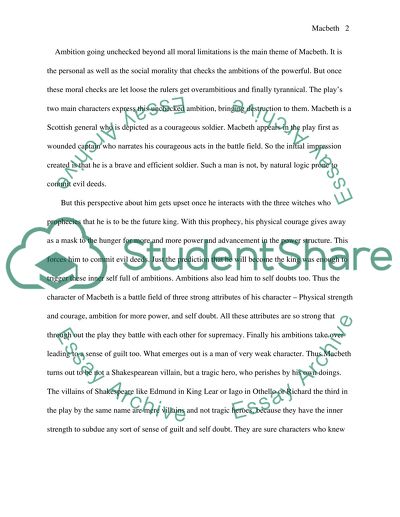Cite this document
(Analysis of Macbeth Classic Tragedy Written by William Shakespeares Research Paper, n.d.)
Analysis of Macbeth Classic Tragedy Written by William Shakespeares Research Paper. Retrieved from https://studentshare.org/literature/1417198-macbeth-essay
Analysis of Macbeth Classic Tragedy Written by William Shakespeares Research Paper. Retrieved from https://studentshare.org/literature/1417198-macbeth-essay
(Analysis of Macbeth Classic Tragedy Written by William Shakespeares Research Paper)
Analysis of Macbeth Classic Tragedy Written by William Shakespeares Research Paper. https://studentshare.org/literature/1417198-macbeth-essay.
Analysis of Macbeth Classic Tragedy Written by William Shakespeares Research Paper. https://studentshare.org/literature/1417198-macbeth-essay.
“Analysis of Macbeth Classic Tragedy Written by William Shakespeares Research Paper”, n.d. https://studentshare.org/literature/1417198-macbeth-essay.


